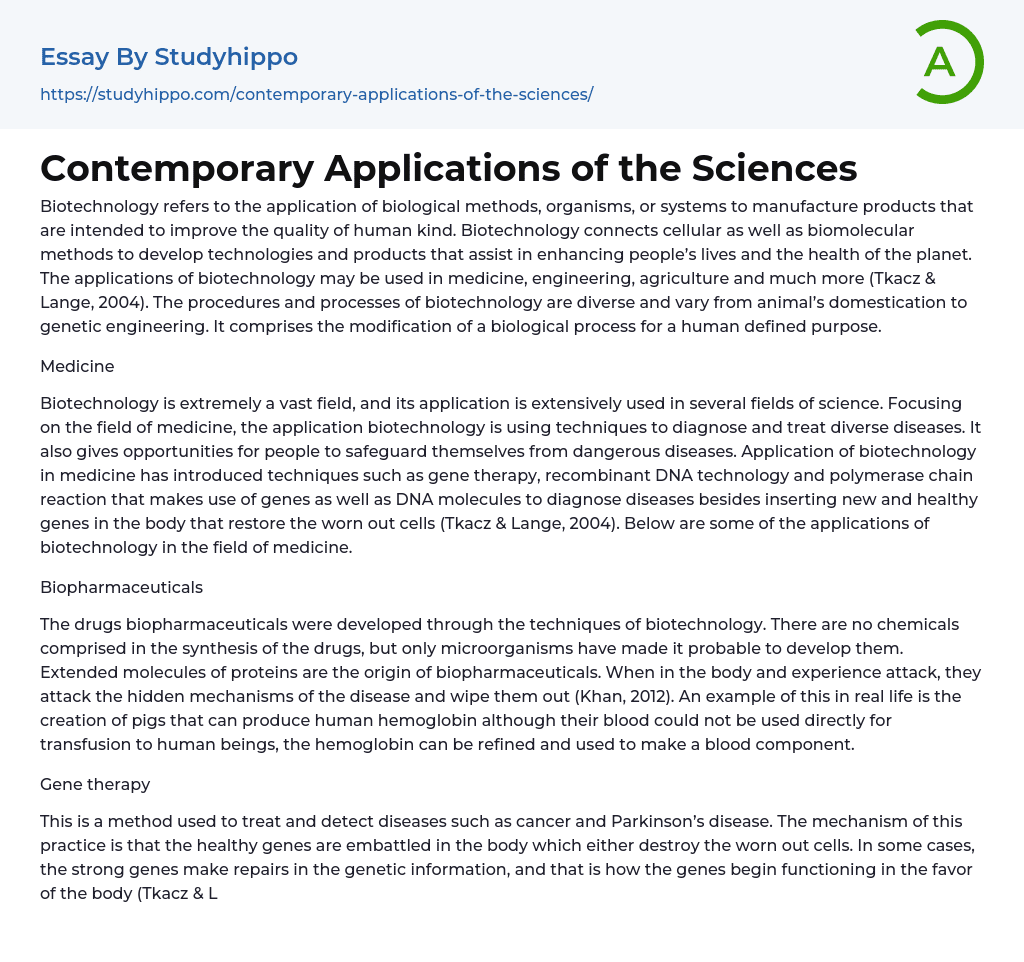Biotechnology employs biological techniques, organisms, or systems to produce products aimed at enhancing human well-being. It integrates cellular and biomolecular methodologies to innovate technologies and products that improve both individual and global health.
Biotechnology has a broad range of applications in medicine, engineering, agriculture, and other areas (Tkacz & Lange, 2004). Its procedures and processes are diverse and include domesticating animals and genetic engineering. The field involves modifying biological processes for specific human purposes.
Medicine
Biotechnology is a vast field with extensive application in various scientific fields.
Biotechnology in medicine plays a crucial role in the diagnosis, treatment, and prevention of diseases. It utilizes gene therapy, recombinant DNA technology, and polymerase chain reaction to identify illnesses and repair damaged cells by introducing healthy genes (Tkacz & Lange, 2004). The subsequent examples highlight the practical applicati
...on of biotechnology in the field of medicine.
Biopharmaceuticals
Biopharmaceuticals, which are drugs manufactured using biotechnology techniques rather than chemicals, consist of large protein molecules. These drugs work by targeting and eliminating the underlying mechanisms of diseases (Khan, 2012). An example of this is the creation of pigs that produce human hemoglobin. Although their blood cannot be directly transfused into humans, the extracted and refined hemoglobin can be used to create a blood component.
Gene therapy
Gene therapy is a method used for both diagnosing and treating diseases like cancer and Parkinson’s disease.
The process aims to eliminate damaged cells by targeting healthy genes within the body. In certain cases, these robust genes can also correct genetic information, providing benefits for the body (Tkacz & Lange, 2004).
Pharmacogenomics
This technique examines an individual's genetic makeup and how their body reacts to specific
medications. It utilizes a genetically modified approach.
The purpose of this field is to develop drugs that are personalized based on an individual's genetic information. For instance, pharmacogenomics tests are utilized in cancer treatment to determine which patients may experience toxicity from commonly used cancer drugs (Khan, 2012).
Genetic testing
This approach in genetics is employed for identifying genetic diseases in parents, as well as for sex and carrier screening. Advances in biotechnology have resulted in a plethora of genetic information pertaining to specific diseases, enabling the creation of tests that can examine an individual's genetic composition to identify and diagnose disease risks (International, 2009). Genetic testing entails the use of DNA probes that possess sequences resembling mutated sequences (Khan, 2012). Numerous biotech companies now offer genetic testing directly to consumers, either through agents or online.
References
- Altman, A. (1997). Agricultural biotechnology. New York: Marcel Dekker.
- International, B. P. U. (2009). Uk biotechnology products exporters handbook. S.l.: Intl Business Pubns Usa.
- Khan, F. (2012). Medical biotechnology.
Place of publication not identified: Academic Press.
Tkacz, J. S., ; Lange, L. (2004). Advances in Fungal Biotechnology for Industry, Agriculture, and Medicine. Boston, MA: Springer US.




